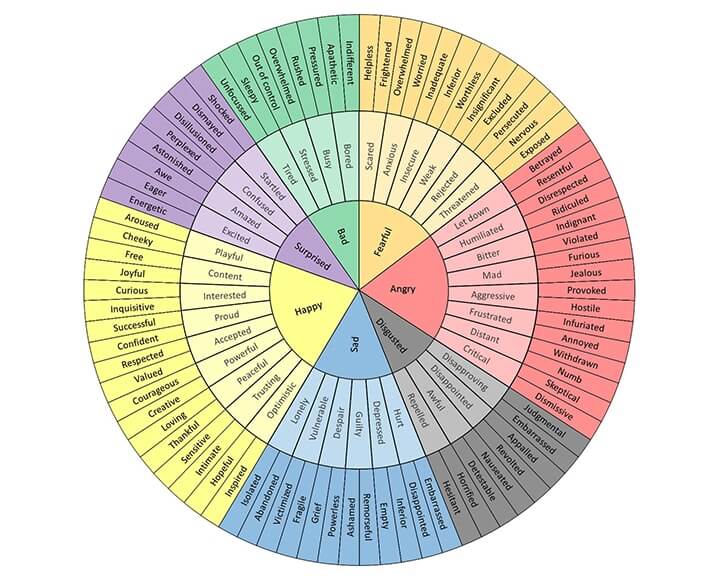-
Parenting is a journey that evolves alongside your child’s development. As children grow from early childhood through adolescence, their emotional and mental health needs change dramatically. By understanding these developmental stages and adapting your support strategies accordingly, you can foster resilience, self-esteem, and well-being. Systemic psychology emphasizes the importance of relationships, communication patterns, and family dynamics in shaping mental health.
In this blog post, we’ll explore tips for supporting your child’s mental health across various stages, highlight key mental health issues to be aware of, and suggest some practical activities you can do together.
Early Childhood (Ages 0-5)
Key Developmental Needs:
– Establishing trust and security
– Developing emotional regulation
– Forming early attachments
How to Support Your Child:
- Build Secure Attachments: Use consistent, responsive caregiving to help your child feel safe and loved. Research has shown that secure attachments in early childhood are linked to better emotional regulation and mental health outcomes later in life. Show affection, maintain eye contact, and provide comfort when your child is distressed.
- Model Emotional Regulation: Children learn to manage their emotions by watching adults. Practice staying calm in stressful situations, and narrate your own emotional experiences in a simple way: “I’m feeling a bit frustrated, so I’m going to take a deep breath.”
- Encourage Expression: Use play, art, or simple verbal expressions to help your child identify and communicate their feelings. Satir emphasized the importance of validation, allowing children to feel seen and heard.
Activity Idea:
– Emotion Faces: Create simple face drawings representing different emotions (happy, sad, angry, surprised). Use these faces during playtime to talk about feelings. Ask your child to match the faces to their current mood or scenarios they encounter.

Middle Childhood (Ages 6-12)
Key Developmental Needs:
– Building self-esteem
– Navigating social relationships
– Developing a sense of competence and achievement
How to Support Your Child:
- Foster a Supportive Environment: Encourage open communication about their day, feelings, and challenges. According to systemic therapy principles, being a compassionate listener and validating their experiences can significantly strengthen their self-esteem.
- Promote Problem-Solving Skills: Help your child work through interpersonal problems by role-playing different scenarios or discussing possible solutions together. This fosters resilience and a sense of autonomy.
- Recognize and Celebrate Achievements: Acknowledge their efforts, not just outcomes. Praising perseverance rather than innate talent encourages a growth mindset, which is linked to better academic and social outcomes.
Activity Idea:
– Compliment Jar: Create a jar where family members can drop in compliments or positive observations about each other. This activity not only boosts self-esteem but also strengthens family connections, a core aspect of systemic therapy.

Early Adolescence (Ages 12-14)
Key Developmental Needs:
– Forming an identity
– Increasing independence
– Managing peer influences and self-esteem issues
How to Support Your Child:
- Maintain Open Communication: Early adolescence is a time when children seek independence. Approach conversations with curiosity rather than judgment. As Satir emphasized, congruent communication—where your words, tone, and body language all align—creates a safe space for sharing.
- Set Appropriate Boundaries: Balance your child’s need for autonomy with safety considerations. Involve them in discussions about rules and expectations to foster mutual respect and understanding.
- Encourage Healthy Peer Interactions: Support your child in building positive relationships by discussing what makes a good friend and the importance of boundaries.
Activity Idea:
– Role-Playing Scenarios: Practice common social situations (like saying no to peer pressure or resolving a conflict) through role-playing. This helps adolescents feel more prepared and confident in their real-life interactions.
Adolescence (Ages 15-18)
Key Developmental Needs:
– Solidifying identity and future direction
– Navigating complex emotional experiences
– Preparing for independence
How to Support Your Child:
- Be a Supportive Ally: Adolescents are dealing with intense emotions and stressors, including academic pressures and social dynamics. Be available as a supportive figure, offering guidance without imposing your own solutions. Satir’s model emphasizes the importance of empathy and empowerment in family interactions.
- Stay Attuned to Mental Health Signs: This stage can be particularly vulnerable to mental health issues, including anxiety, depression, and suicidal ideation. A study from the CDC highlights the growing concern of mental health struggles among adolescents, with suicide being a leading cause of death in this age group.
- Promote Coping Strategies: Discuss and model healthy coping mechanisms, such as mindfulness, exercise, or creative outlets. Encourage your teen to seek help if they’re struggling; systemic therapy often involves not just the individual but the whole family in the healing process.
Activity Idea:
– Family Mindfulness Practice: Introduce a simple mindfulness exercise, like deep breathing or guided imagery, as a family routine. This can help everyone manage stress and foster a sense of calm and connection.

Awareness of Mental Health Issues, Including Suicide
September is Suicide Prevention Awareness Month, a critical time to raise awareness and engage in conversations about mental health. This month is an opportunity to educate ourselves and others about the signs of suicide and how to support those who may be struggling.
Key Considerations:
– Proactive Discussions: Normalize conversations about mental health from a young age. As children grow, introduce age-appropriate discussions about more serious topics, including suicide.
– Know the Warning Signs: Be aware of signs of distress, such as drastic changes in mood, behavior, or routine. A systemic approach looks at these signs within the context of family dynamics and external stressors, understanding that each family member’s mental health is interconnected.
– Seek Professional Help: If you notice persistent signs of distress, such as self-harm or talk of suicide, reach out to a mental health professional. Family therapy can be particularly beneficial, offering a space to address underlying dynamics and strengthen family support systems.

Using the Feelings Wheel as a Tool
One powerful tool to help children and adolescents articulate their emotions is the Feelings Wheel. Developed by Dr. Gloria Willcox, the Feelings Wheel helps expand emotional vocabulary and supports deeper conversations about feelings, a key component in systemic therapy. By identifying and naming emotions accurately, children can better understand and communicate their experiences.
How to Use It:
– For Younger Children: Use a simplified version of the wheel with basic emotions like happy, sad, angry, and scared. Ask your child to point to how they feel today or after a specific event.
– For Older Children and Teens: Use the full Feelings Wheel to explore more nuanced emotions. Discuss times they might have felt these emotions and what triggered them. This tool aligns with Satir’s focus on congruent communication, helping family members to express themselves clearly and authentically.
Activity Idea:
– Weekly Feelings Check-In: Set aside time each week for a family check-in using the Feelings Wheel. Each family member can share a few emotions they felt during the week and why. This practice not only normalizes talking about emotions but also strengthens family bonds by fostering understanding and empathy.
Supporting your child’s mental health at every developmental stage involves understanding their evolving needs and adapting your approach using systemic principles. By fostering open communication, modeling healthy behaviors, and staying aware of potential mental health issues, parents can create a nurturing environment that promotes resilience and well-being throughout their child’s growth. Remember, the goal isn’t to eliminate challenges but to equip your child with the tools and support needed to navigate them successfully.
